Hermes Oil
$15.95
1/2 oz. bottle
In stock
SKU: OIL: Hermes Oil - Greek God
Categories: All Oils, Business, Greek Gods & Goddesses, Money, Money - Work - Business
Tags: creativity., development of concentration, gambling, invention, messaging, sleep, speed, travel, wealth
Hermes is a Greek messenger god, swift and cunning, portrayed with winged feet, wearing a winged helmet and carrying a caduceus, a serpent-entwined, magic wand that symbolizes spiritual illumination.
Hermes also was a patron god of Magic, using his caduceus to cast spells.
As the god of travelers, his image was erected at Crossroads; as he was charged with escorting the souls of the dead to the underworld.
Summon Hermes to assist with:
- Use to invoke or worship the god; aids in the development of concentration and creativity.
- Hermes was the God of wealth
- He was known for his many powers which included being the god of travel, gambling, messaging, invention, sleep, speed, and thievery.
- Hermes was credited with inventing fire, the alphabet, dice (actually knucklebones) – and so he was worshipped by gamblers in his capacity as god of luck and wealth, and musical instruments, in particular, the lyre – made from a tortoiseshell by the god.
About Hermes
- He is the God of Merchants and new inventions.
- Hermes was a jovial trickster who was beloved and useful among the gods.
- He was the son of Zeus and Maia, daughter of Titan Atlas.
- Hermes wore winged sandals and held the caduceus, his wand which had two serpents twined around it. Hermes wielded a golden herald’s staff as a symbol of his role as the herald of the gods. It was called kerykeion by the Greeks and caduceus by the Romans.
- The association between Hermes and the underworld is related to his function as a god of boundaries (the boundary between life and death), but he is considered a psychopomp, a deity who helps guide souls of the deceased to the afterlife, and his image was commonly depicted on gravestones in classical Greece. He would take the souls to the river Styx where Charon, the ferryman, would take the souls of the dead to the other side as long as they had been buried properly with a coin placed under the tongue as a payment for Charon.
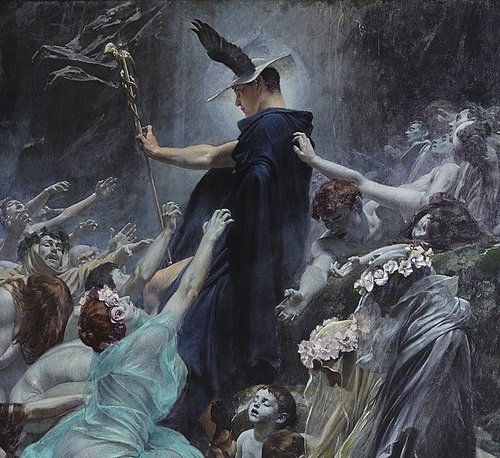
Legends say……
- He was a clever, inventive, and arrogant god.
- As soon as he was born, Hermes saw a turtle. He took her shell, placed seven strings in it and invented the lyre. He once stole the oxen guarded by god Apollo and locked them in a cave. He wouldn’t admit the theft, but in the end, he confessed. To avoid punishment, he gifted the lyre to Apollo.
- He was the one who accompanied the souls of the dead to Hades and for that, he was known as the “soul-bearer”.
SOURCE:
The Encyclopedia of Witches, Witchcraft and Wicca – written by Rosemary Ellen Guiley – Copyright © 1989, 1999, 2008 by Visionary Living, Inc.
| Weight | 0.1 lbs |
|---|
Only logged in customers who have purchased this product may leave a review.



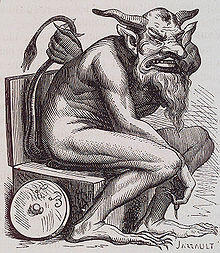



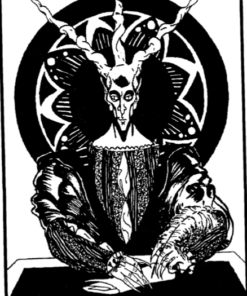
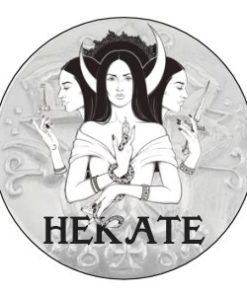


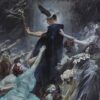
Reviews
There are no reviews yet.